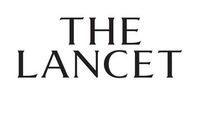The MUG's scientist's co-work in "The Lancet" journal
31.01.2018

Maria Mazurkiewicz-Bełdzińska M.D. Ph.D. from the Department of Developmental Neurology is one of the authors of the work “Cannabidiol in patients with seizures associated with Lennox-Gastaut syndrome (GWPCARE4): a randomised, double-blind, placebo-controlled phase 3 trial”, which appeared in the prestigious medical journal “The Lancet”. The publication is the result of a multi-centre collaboration of experts dealing with the treatment of drug-resistant epilepsy. The study was a joint work of medical centres from the United States, the Netherlands, the United Kingdom and Poland. Ms. Mazurkiewicz-Bełdzińska M.D. Ph.D. is the only European author of this work, which confirms her contribution to the collection, analysis and interpretation of data. The obtained results confirmed the efficacy of cannabidiol in added therapy in patients with the diagnosed Lennox-Gastaut syndrome.
The work published in The Lancet journal discusses the results of a closely controlled (randomised, blinded placebo-controlled) phase 3 trial evaluating the efficacy of cannabidiol-added therapy as a new 20 mg / kg antiepileptic drug in 171 patients with Lennox-Gastaut syndrome. The study showed a significant reduction in the number of falls in patients taking cannabidiol. These results support the efficacy of cannabidiol in the treatment of drug-resistant epileptic syndromes obtained in the first study on the use of cannabidiol in the treatment of patients with Dravet syndrome, which were published in The New England Journal of Medicine.
The preparation used in this work is a drug that was made on the basis of marijuana, but went through all stages of clinical trials, allowing it to be used in phase 3 trials. Similar criteria are not met by other, more or less available marijuana preparations, which are only dietary supplements, with unknown composition or dosage.
This study contributes to the record of the effectiveness of cannabidiol in epileptic encephalopathy, the Lennox-Gastaut syndrome. The authors emphasise that further research is necessary, especially long-term observations, which will be able to confirm the persistence of the treatment effect and broaden knowledge about the safety of this drug.
Archives
- Academic Year 2024/2025
- Academic Year 2023/2024
- Academic Year 2022/2023
- Academic Year 2021/2022
- Academic Year 2020/2021
- Academic Year 2019/2020
- Academic Year 2018/2019
- Academic Year 2017/2018
- Academic Year 2016/2017
- Academic Year 2015/2016
- Academic Year 2014/2015
- Academic Year 2013/2014
- Academic Year 2012/2013